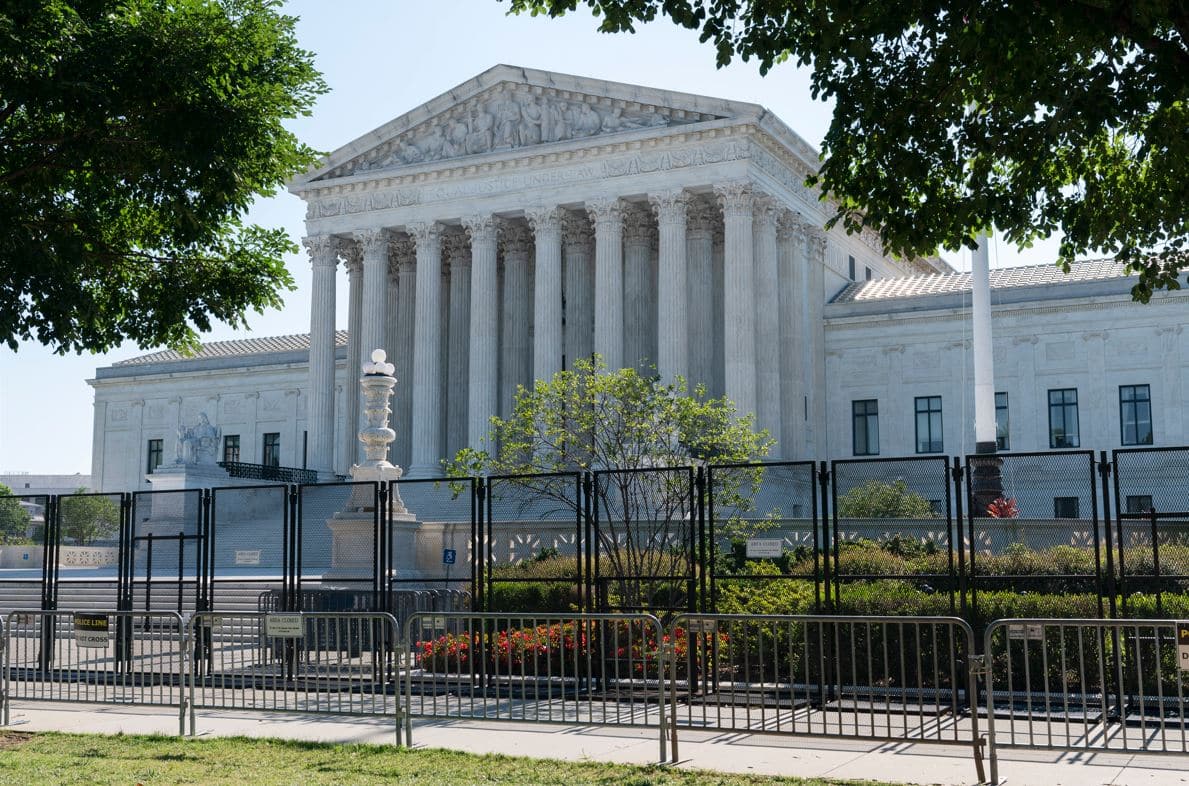Bill Would Help Congress Counteract Supreme Court Rulings

WASHINGTON — Senate Democrats proposed a bill Thursday that would authorize Congress to override Supreme Court decisions that interpret constitutional rights or federal statutes.
The Supreme Court Review Act would streamline procedures for Congress to use legislation to amend statutes or to create new legal rights that were adjudicated into oblivion by the high court.
The bill raises the stakes in a tug-of-war between Congress and the Supreme Court heightened by conservatives who gained a 6-3 supermajority during the Trump administration.
“Six radical justices enacted a bonanza of right-wing policies during the last term, reshaping American life in wildly unpopular ways over just a matter of days,” said Sen. Sheldon Whitehouse, D-R.I.
He is a co-sponsor of the Supreme Court Review Act as well as a member of the Senate Judiciary Committee, where criticism of the justices among Democrats has been severe in recent weeks.
“This important, good-government reform would check the activist court’s rogue decisions by ensuring policymaking stays where the Constitution delegated it: in the hands of the American people and their elected representatives,” Whitehouse said about his bill.
Support for reining in the Supreme Court’s power reached a crescendo after the June 24 ruling in Dobbs v. Jackson Women’s Health Organization, where the court upheld Mississippi’s ban on abortions after 15 weeks of pregnancy, thereby overturning the federal right to abortion established in 1973 in the case of Roe v. Wade.
Other controversial rulings before the Supreme Court left for its summer recess endorsed rights to display religious devotion at public school functions, expanded rights to carry concealed guns outside the owners’ homes and limited the Environmental Protection Agency’s authority to restrict greenhouse gas emissions.
A new Marquette Law School poll showed 61% of Americans disapprove of the Supreme Court’s recent performance. A CNN poll released this week showed 63% of respondents opposed the Dobbs decision to uphold state abortion bans.
The Supreme Court justices are aware of the outrage against them but insist they are following the proper procedures to uphold the laws. In the Dobbs decision, the majority opinion said that nowhere does the Constitution mention abortion in a way indicating it is a protected right.
At a judicial conference in Big Sky, Montana, last week, Justice Elena Kagan said, “If over time the court loses all connection with the public and with public sentiment, that’s a dangerous thing for democracy.”
She dissented in nearly all the recent decisions advanced by conservatives on the court.
One of them was the June 23 ruling that declared for the first time that the Constitution’s Second Amendment protects an individual’s right to carry a handgun in public for self-defense. The 6-3 ruling struck down New York’s requirement to show a specific need for a gun permit.
It came one month after the Uvalde, Texas, shooting at Robb Elementary School, where 19 students and two teachers were killed and 17 others wounded by a teenage gunman. It also drew harsh criticism of the court.
Conservatives on the Supreme Court now are discussing the possibility of revoking a constitutional right to gay marriage.
The Supreme Court Review Act would give Congress a fast-track method to reverse any of the recent rulings.
It closely follows the same authorizations allowed under the Congressional Review Act. The 1996 law set procedures empowering Congress to rescind major rules enacted by federal agencies.
The Supreme Court Review Act includes procedures for the Senate to approve laws that might reverse Supreme Court rulings by a simple majority within a set period of time. It also gives the minority party in the Senate an opportunity to propose alternative updates to the law.
Republicans have not yet responded to the bill after it was introduced Thursday but previously have been skeptical of any infringements on the separation of powers established in the Constitution. President Joe Biden has not endorsed any proposals to limit the court’s power.
The bill is winning support from some nonprofit advocacy groups, such as People For the American Way and the Supreme Court watchdog Fix the Court.
Sen. Catherine Cortez Masto, D-Nev., said in a statement the bill would help Congress respond when the court “misinterprets congressional intent or strips Americans of fundamental rights.”
She added, “I’ve always said that the most important quality in a Supreme Court justice is their ability to understand the impact their decisions will have on everyday Americans. In the face of an increasingly extreme Supreme Court, the American people deserve accountability and responsiveness from all three branches of government.”
Tom can be reached at [email protected] and @TomRamstack






















